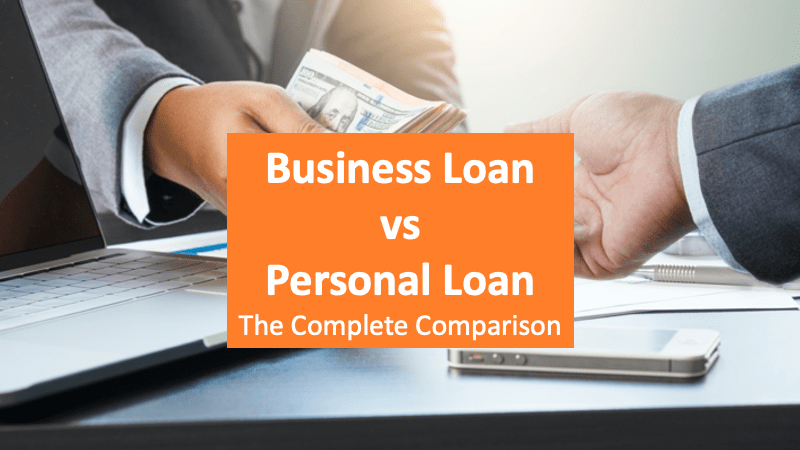Business Loans vs. Personal Loans: Which is Right for You?
Related Articles
- Unlocking Growth: How Business Loans Can Supercharge Your Cash Flow
- Unlocking Enterprise Funding: Navigating The Mortgage Panorama With Unhealthy Credit score
- Unlocking Alternative: Your Information To Minority-Owned Enterprise Loans
- High 10 Enterprise Loans For Small Companies: A Complete Information To Funding Your Progress
- Navigating The SBA 7(a) Mortgage: A Complete Information To Qualification
Introduction
Welcome to our in-depth look at Business Loans vs. Personal Loans: Which is Right for You?
Video about
Business Loans vs. Personal Loans: Which is Right for Your Venture?

Starting and growing a business can be a thrilling, challenging, and often financially demanding journey. Securing the right funding is crucial, and understanding the differences between business loans and personal loans is essential for making an informed decision. This comprehensive guide will explore the nuances of each loan type, helping you determine which option best aligns with your business needs and financial situation.
The Foundation: Understanding the Basics
Both business loans and personal loans provide access to capital, but they differ significantly in terms of their purpose, eligibility requirements, interest rates, and repayment terms.
Business Loans:
- Purpose: Designed specifically for business-related expenses, such as purchasing equipment, expanding operations, covering working capital needs, or financing inventory.
- Eligibility: Typically requires a strong credit history, a solid business plan, and financial statements demonstrating the business’s ability to repay the loan. Lenders often assess factors like revenue, profitability, and cash flow.
- Interest Rates: Generally higher than personal loans due to the inherent risk associated with lending to businesses.
- Repayment Terms: Vary depending on the loan type and lender, but typically range from a few years to 10 or more years.

Personal Loans:
- Purpose: More flexible and can be used for a wide range of personal expenses, including debt consolidation, home improvements, medical bills, or even financing a vacation.
- Eligibility: Primarily based on individual creditworthiness, income, and debt-to-income ratio. Lenders assess your credit score, employment history, and overall financial stability.
- Interest Rates: Generally lower than business loans due to the lower risk associated with lending to individuals.
- Repayment Terms: Typically shorter than business loans, ranging from a few months to several years.
Delving Deeper: Key Considerations
Choosing between a business loan and a personal loan requires careful consideration of several factors:
1. Loan Purpose:
- Business Loans: Ideal for funding business-related expenses, ensuring the borrowed funds are directly used for the growth and development of your venture.
- Personal Loans: Suitable for personal expenses that are not directly tied to your business, such as debt consolidation, home improvements, or unexpected medical costs.
2. Eligibility Requirements:
- Business Loans: More stringent eligibility requirements, including a robust business plan, financial statements, and a strong credit history. Lenders may require collateral, such as equipment or real estate, to secure the loan.
- Personal Loans: Focus primarily on individual creditworthiness, income, and debt-to-income ratio. Lenders may require a credit score above a certain threshold for approval.
3. Interest Rates and Fees:
- Business Loans: Generally have higher interest rates than personal loans due to the greater risk involved in lending to businesses. Fees can also be higher, including origination fees, closing costs, and annual maintenance fees.
- Personal Loans: Offer lower interest rates and fewer fees compared to business loans. However, interest rates can still vary based on your credit score and other factors.
4. Repayment Terms:
- Business Loans: Typically offer longer repayment terms, providing more flexibility and time to repay the loan.
- Personal Loans: Generally have shorter repayment terms, requiring faster repayment and potentially higher monthly payments.
5. Tax Implications:
- Business Loans: Interest paid on business loans is typically deductible as a business expense, reducing your taxable income.
- Personal Loans: Interest paid on personal loans is usually not deductible, except in specific cases like home equity loans or debt consolidation loans.
The Advantages and Disadvantages of Each Loan Type
Business Loans:
Advantages:
- Targeted Funding: Specifically designed for business expenses, ensuring the borrowed funds are used for business growth and development.
- Longer Repayment Terms: Provide more time to repay the loan, reducing monthly payments and increasing flexibility.
- Tax Deductible Interest: Interest paid on business loans is often tax-deductible, reducing your taxable income.
- Potential for Higher Loan Amounts: Lenders may be willing to provide larger loan amounts to businesses with solid financial projections.
Disadvantages:
- Higher Interest Rates: Interest rates on business loans are typically higher than personal loans due to the greater risk involved.
- Stricter Eligibility Requirements: Lenders require a strong business plan, financial statements, and a good credit history for approval.
- Potential for Collateral Requirements: Lenders may require collateral, such as equipment or real estate, to secure the loan.
- Complex Application Process: The application process for business loans can be more complex and time-consuming than for personal loans.
Personal Loans:
Advantages:
- Lower Interest Rates: Generally have lower interest rates than business loans due to the lower risk associated with lending to individuals.
- Simpler Application Process: The application process is typically faster and less complex than for business loans.
- Flexible Use: Can be used for a wide range of personal expenses, including debt consolidation, home improvements, or medical bills.
Disadvantages:
- Not Designed for Business Expenses: Using a personal loan for business expenses can be risky and may not be tax-deductible.
- Shorter Repayment Terms: Shorter repayment terms can lead to higher monthly payments.
- Limited Loan Amounts: Lenders typically offer smaller loan amounts for personal loans compared to business loans.
- Potential for Higher Interest Rates: Interest rates can be higher for borrowers with lower credit scores.
Navigating the Decision: A Step-by-Step Guide
1. Assess Your Business Needs:
- Clearly define your business goals: What do you need the funding for? Are you starting a new business, expanding your operations, or covering working capital needs?
- Develop a detailed business plan: A well-structured business plan outlining your financial projections, market analysis, and growth strategy is crucial for securing a business loan.
2. Evaluate Your Financial Situation:
- Assess your credit score: A strong credit score is essential for both business and personal loans.
- Review your financial statements: Provide lenders with accurate financial statements demonstrating your business’s profitability, cash flow, and overall financial health.
- Calculate your debt-to-income ratio: This ratio measures your debt obligations relative to your income, providing insights into your ability to repay a loan.
3. Research Loan Options:
- Explore different lenders: Compare interest rates, fees, and repayment terms offered by various banks, credit unions, and online lenders.
- Consider alternative financing options: Explore crowdfunding platforms, venture capital, or angel investors as potential funding sources.
4. Seek Professional Advice:
- Consult with a business advisor: A seasoned advisor can provide guidance on the best loan options for your specific business needs.
- Speak with a financial advisor: A financial advisor can help you assess your financial situation and determine the most appropriate loan strategy.
5. Make an Informed Decision:
- Weigh the pros and cons of each loan type: Carefully consider the advantages and disadvantages of business loans and personal loans based on your specific circumstances.
- Choose the option that best aligns with your business goals and financial situation: Select the loan that provides the most favorable terms and supports your long-term financial success.
Case Studies: Real-World Examples
Case Study 1: The Growing E-commerce Store
Sarah, a budding entrepreneur, launched an online store selling handmade jewelry. As her business grew, she needed additional funding to purchase inventory, expand her website, and hire a marketing specialist. She considered both business loans and personal loans but ultimately opted for a business loan due to the higher loan amounts, longer repayment terms, and tax-deductible interest. The business loan provided the necessary capital to fuel her business growth and achieve her expansion goals.
Case Study 2: The Home-Based Business
John, a freelance graphic designer, worked from home and needed funding for a new computer and design software. He considered a business loan, but the stringent eligibility requirements and potential for collateral made it a less attractive option. Instead, he secured a personal loan with a lower interest rate and shorter repayment term. The personal loan provided the necessary funds for his business equipment, allowing him to continue his freelance work without the complexities of a business loan.
Conclusion: Choosing the Right Path
The decision between a business loan and a personal loan depends on your individual circumstances, business needs, and financial situation. Understanding the nuances of each loan type, assessing your eligibility, and carefully considering the associated costs and benefits are essential for making an informed decision. By diligently evaluating your options and seeking professional advice, you can secure the right funding to fuel your business growth and achieve your entrepreneurial dreams.
Key SEO Keywords:
- Business Loans
- Personal Loans
- Small Business Loans
- Loan Eligibility
- Interest Rates
- Repayment Terms
- Business Expenses
- Debt Consolidation
- Credit Score
- Financial Statements
- Business Plan
- Loan Application
- Lenders
- Alternative Financing
- Business Advisor
- Financial Advisor
- Funding
- Startup Funding
- Business Growth
- Entrepreneurship
- Financial Success
- Loan Comparison
- Loan Options
- Loan Strategies
Remember: This article provides general information and should not be considered financial advice. Consult with a qualified financial advisor to receive personalized guidance tailored to your specific situation.
Closure
Thank you for reading! Stay with us for more insights on Business Loans vs. Personal Loans: Which is Right for You?.
Don’t forget to check back for the latest news and updates on Business Loans vs. Personal Loans: Which is Right for You?!
Feel free to share your experience with Business Loans vs. Personal Loans: Which is Right for You? in the comment section.
Stay informed with our next updates on Business Loans vs. Personal Loans: Which is Right for You? and other exciting topics.
